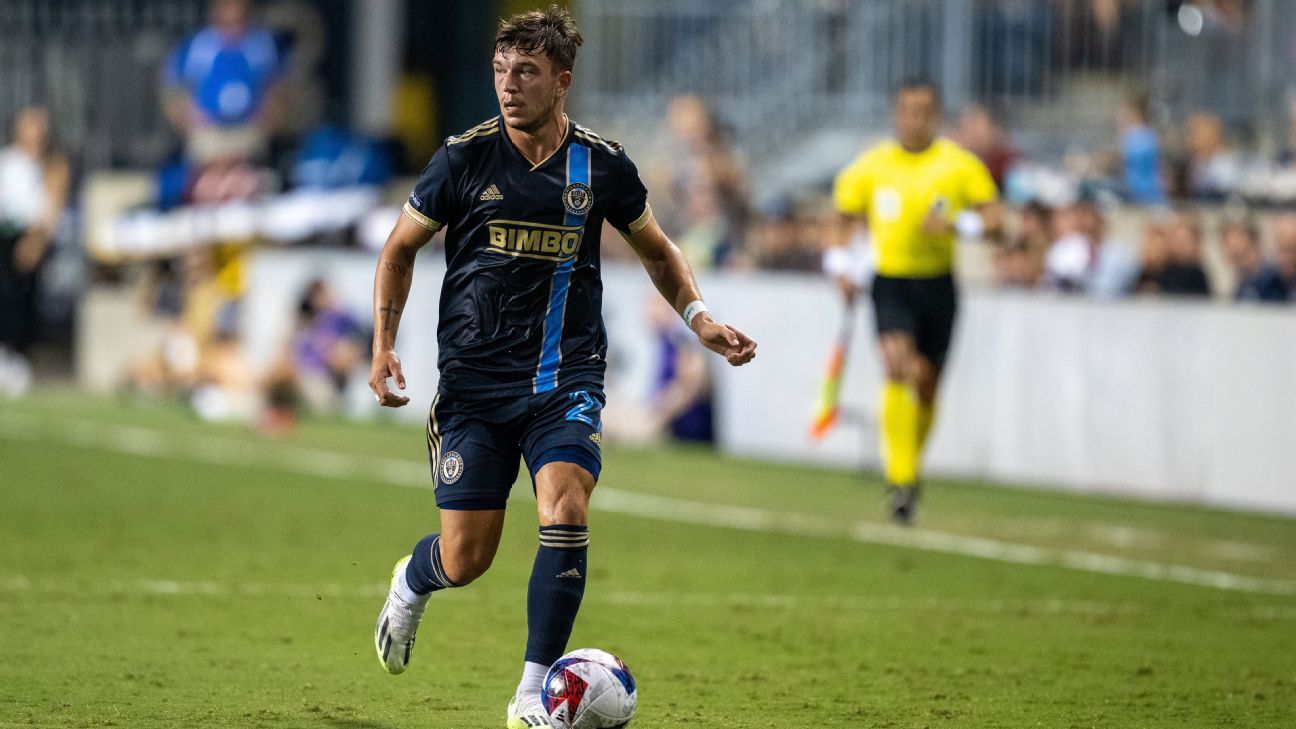Products You May Like
MLS, in conjunction with the MLS Players Association and Black Players For Change, announced the initial rollout of its anti-discrimination policy on Thursday.
The policy was crafted in response to several on-field incidents of player-on-player racial abuse that have taken place in the last 20 months.
– Stream on ESPN+: LaLiga, Bundesliga, more (U.S.)
The goal of the policy is to eliminate such incidents by “deterring misconduct, achieving both discipline and accountability, and encouraging honesty, growth and education,” the league said in a statement.
“To bring something like this [policy] to bear is no small task, and it takes not just a lot of smart minds, but a lot of big hearts to think outside of the box, to build a culture that’s rooted in dignity and respect and to build a culture that can be a leader, not just in the soccer and football landscape around the world, but in the sports landscape and beyond,” MLS chief engagement and inclusion officer Sola Winley said in a roundtable with reporters.
The new policy is the product of nine months of planning, and came to light last year.
The policy includes conducting thorough investigations when an incident occurs, including assessments of video and audio footage, a review of the official match report and interviews with relevant witnesses.
But the policy also is comprised of a pathway for restorative justice that involves both the accuser and accused.
Any players involved in a discriminatory incident will have the opportunity to speak confidentially with a trained facilitator.
The facilitator will play a formal role in evaluating the situation and offering a proposed restorative plan when appropriate.
Restorative plans may include multiple sessions between the alleged offender and the restorative practices facilitator to understand the harm caused and potentially provide the alleged offender an opportunity to make amends with those harmed by his conduct, in addition to education and personalized counseling.
The MLS commissioner retains the authority to issue discipline if it is determined that a violation occurred, but a player who accepts responsibility for his mistake and agrees to engage in a restorative plan will face less severe discipline than if he denies committing the act and is found, based on all the evidence, to have been untruthful or misleading.
BPC executive director Alan Hopkins hailed the steps that the league, players’ union and the BPC have taken in formulating the policy.
“Any club in the world, administrator, executive, coach wants to be a first market mover in how they play, their game model, how they regenerate, how they travel,” said Hopkins. “But no one really wanted to be a first market mover in this. And this is what the league and the [MLSPA] and BPC have done in this moment. It’s become a first market mover.”
In terms of prevention, the league has rolled out a cultural awareness training program it calls “Playing As One”, in which all players, coaches and staff must participate. It involves educating the participants on cultural differences, harmful stereotypes, while also informing them on which words are deemed offensive by some cultures.
This includes language deemed discriminatory in terms of gender identity or sexual orientation.
New England Revolution goalkeeper Earl Edwards, Jr., who also sits on the board of both the MLSPA and the BPC, said most meetings in preseason aren’t eagerly anticipated by players given the grind of training camp. But the response from the cultural awareness training was different.
“Everybody left the meeting like, ‘Oh wow, I actually enjoyed that and I think I got a lot out of it,'” Edwards said. ” And I think it did have this ability of bringing our group even closer together…I could see the camaraderie that was being built in to know that’s happening throughout the league.”
The cultural awareness program is being facilitated by former MLS players, who also participated in the curriculum design.
Spanish and French speakers are among the facilitators in order to reach as many players as possible.
One of the facilitators is former New York Red Bulls goalkeeper Luis Robles, who echoed Edwards’ thoughts in that the feedback from the participants has been positive.
“This conversation is so important in the material and the discussion that takes place,” he said. “It’s so paramount to what’s happening in the league. We wanted to be able to take the material, engage in the conversation in a meaningful way that players won’t [lose interest].
“And that’s a big task. It is a massive task, and yet the amount of feedback that we receive posts allows us to think that we’re in the right track. So far, 20 out of 29 teams have completed workshop. Club visits started on Jan. 16 and will conclude on Feb. 21.”
Winley added, “Our goal here is to get at the root of it, not just deal with the behavior, but to deal with what contributes to that behavior and what we have to therefore understand and educate people on different cultures and how those cultures come together.”
